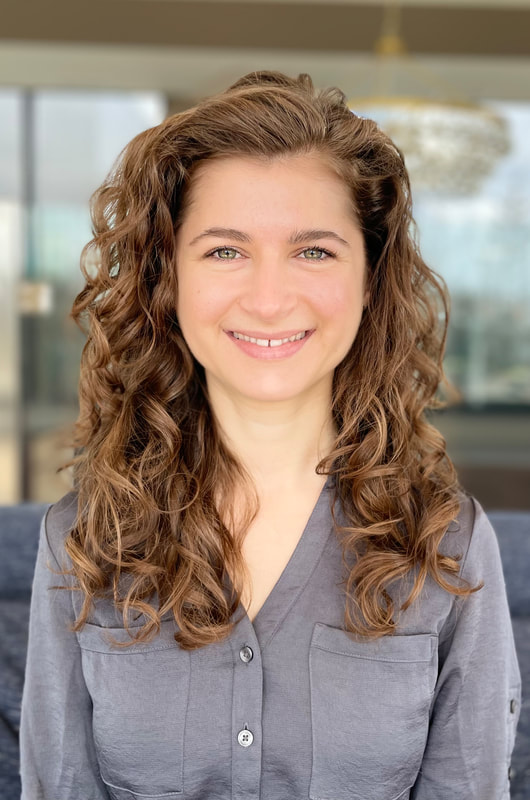Northeastern Oklahoma Psychology Internship Program (NOPIP) at LIBR/LPCH
Clinical psychology internships are a one-year experience completed by clinical psychology doctoral students as a required part of their training. Students who are eligible apply and are matched to programs via the APPIC match process. Laureate currently provides one full-time APA-accredited clinical psychology internship position as part of the Northeastern Oklahoma Psychology Internship Program (NOPIP). The intern will obtain experiences within the Laureate Psychiatric Clinic and Hospital (LPCH) and the Laureate Institute for Brain Research (LIBR). The intern works with their supervisor to identify clinical and research experiences most relevant to their training goals; some of the experiences available are summarized below. Current salary is $35,000 for the one-year internship. For questions about the internship, please contact Dr. Aupperle.
About LPCH and LIBRLaureate Psychiatric Clinic and Hospital (LPCH) is a private, not-for-profit psychiatric facility that is affiliated with the Saint Francis Health System. The Saint Francis Health System also includes four medical-surgical hospitals and over 450 primary care and specialty physician practices. Laureate provides mental health treatment services for adults and seniors across the full continuum of care. Substance abuse treatment is provided for adults.
The Laureate Institute for Brain Research (LIBR) opened in 2009 and currently houses a multidisciplinary team of scientists and clinical research staff who apply neuroimaging, genetic, pharmacological and neuropsychological tools to investigate the biology and treatments of neuropsychiatric disorders. Clinical ActivitiesClinical activities are obtained through LPCH clinical units and through LIBR Clinical Research.
Additional Opportunities
|
Research ActivitiesA minimum of 8 hours per week are reserved for research-related activities during this one-year internship. Research activities may involve conducting literature reviews, data analysis, and preparing results for conference presentation or publication. These activities would be tailored to the interests of the intern through collaboration with supervisors and mentors. Interns will be encouraged to submit their research for conference presentation and/or publication. Research mentors may include the NOPIP supervisors listed below and/or other investigators at LIBR, identified based on the intern’s interests.
There are a number of different completed and ongoing research projects that interns can focus on for their research training and experience. These options include data from longitudinal and clinical outcome studies focused on depression, anxiety, or substance use, and utilizing multiple levels of assessments, including self-report, behavior, bioassays, neurofeedback, and neuroimaging (using functional magnetic resonance imaging and electroencephalography). More specific information on some of the completed or ongoing studies are provided below:
|
Clinical Supervisors
Previous Interns
|
Hannah Berg, Ph.D.
2021-2022 LPCH/LIBR Intern Graduate Program: University of Minnesota - Twin Cities Currently a postdoctoral scholar at LIBR |
Sonalee Joshi, Ph.D.
2022-2023 LPCH/LIBR Intern Graduate Program: University of Michigan Currently a postdoctoral scholar at the Center for Treatment and Study of Anxiety- University of Pennsylvania |
LIBR and LPCH Eating Disorders Clinic Videos
|
|
|
LIBR's Commitment to Diversity, Equity and Inclusion
The LIBR Diversity, Equity, and Inclusion Initiative was established with the goals of deepening our understanding of mental health disparities, improving generalizability of our research findings to our communities of focus, and enhancing the quality of science by increasing representation in the field by individuals from historically marginalized communities.
As committee members dedicated to supporting Diversity, Equity, and Inclusion (DEI) initiatives, we recognize that, historically, research was conducted in a way that was deeply painful to marginalized groups, and the impact of systemic and structural biases on mental health are too often ignored or underestimated. We recognize that although there has been much improvement in how science is conducted, there is still much work needed to enhance our understanding and appreciation of factors related to diversity. We hold that there is no “finish line” to reach, rather the goal for the Diversity Initiative at LIBR is to continually work toward making science a more diverse, equitable, and inclusive space to conduct research that is positively impactful for the communities with whom we work.
For our NOPIP internship, we extend our dedication to Diversity, Equity, and Inclusion to not only better understanding the unique factors that contribute to mental health across diverse groups and individuals, but also to consider how we can use this understanding to improve the mental health services we currently provide.
For more information, please visit the LIBR DEI Initiative.
As committee members dedicated to supporting Diversity, Equity, and Inclusion (DEI) initiatives, we recognize that, historically, research was conducted in a way that was deeply painful to marginalized groups, and the impact of systemic and structural biases on mental health are too often ignored or underestimated. We recognize that although there has been much improvement in how science is conducted, there is still much work needed to enhance our understanding and appreciation of factors related to diversity. We hold that there is no “finish line” to reach, rather the goal for the Diversity Initiative at LIBR is to continually work toward making science a more diverse, equitable, and inclusive space to conduct research that is positively impactful for the communities with whom we work.
For our NOPIP internship, we extend our dedication to Diversity, Equity, and Inclusion to not only better understanding the unique factors that contribute to mental health across diverse groups and individuals, but also to consider how we can use this understanding to improve the mental health services we currently provide.
For more information, please visit the LIBR DEI Initiative.





